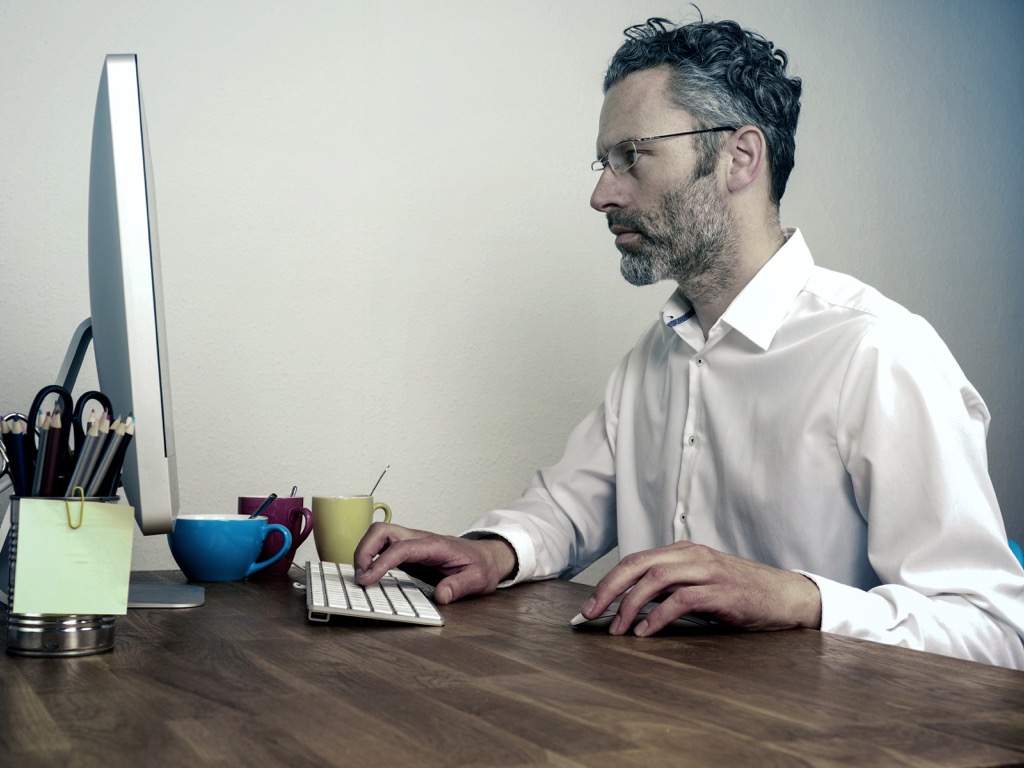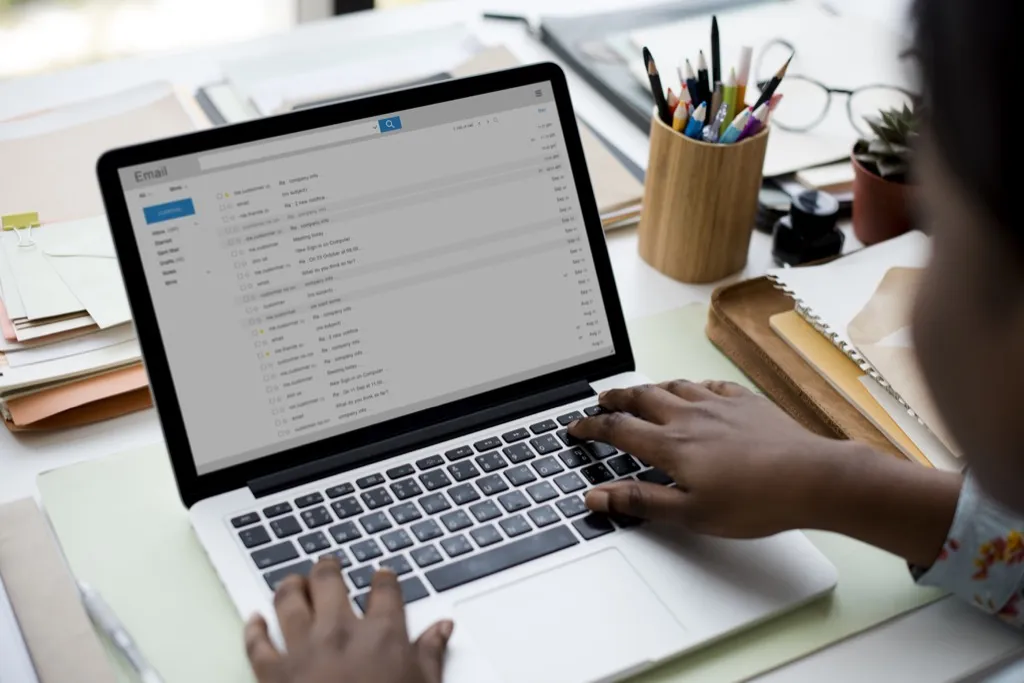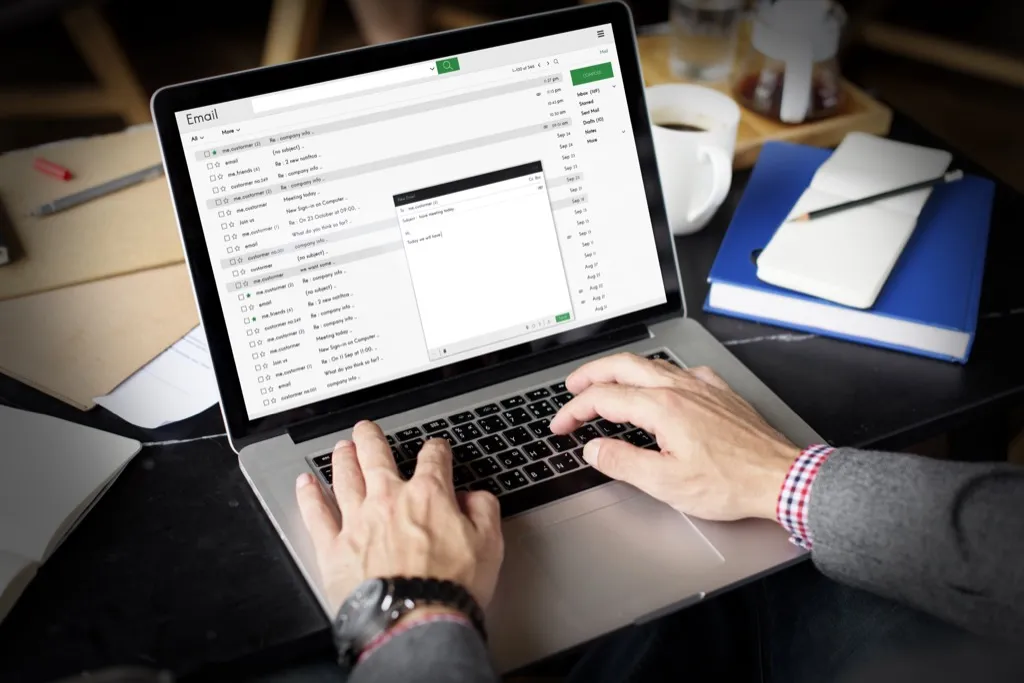60 Ways to Buy an Extra 60 Minutes Every Day

Plenty of research will tell you that more money—besides a certain amount required to cover your basic necessities and then some—doesn’t necessarily mean more happiness. But do you know what does directly translate into more happiness? More time.
A new study published in the PNAS Scientific Journal found that “buying time” (such as delegating household chores) actually led to measurably greater life satisfaction.
Now, we’d never tell you to ease off of your quest for that raise, but we’d definitely tell you to try to get more time out of your days. In some cases, that might mean literally hiring someone to do the stuff you don’t want to do. It might also mean re-thinking how you approach certain daily time-sucks, such as email. And it may mean changing the ways you interact with your closest colleagues—all in the interest of being a speedier, more effective worker, and then having more time to yourself. Read on for the best ways to get a full hour back every single day. And for more great tips for getting things done, here are 15 Ways to Triple Your Productivity Every Day.
1
Find Your Weak Points Immediately

“Evaluate a regular day,” says Justin Lavelle, chief communications officer at Beenverified. “This means writing down everything you do from rise and shine to bedtime.”
Noting down all morning routine and distractions helps you notice things like wandering back and forth between the bathroom and television. If you work from home, observe if you do unnecessary repeat trips to the laundry room or the kitchen.
“Sit down and mine your data for problems,” says Lavelle. “Maybe if you didn’t watch morning television you could get out of the house 15 minutes early, which puts you a bit ahead of traffic thus saving another 15 minutes or so.”
You will likely discover that finding ways to optimize your day with an hour is not as challenging as it might look. And here’s one leading CEO’s advice on how to double your productivity overnight.
2
Set Earlier Deadlines

We fill the time that we have. If your boss gives you two weeks to get a report together, you are likely to use all two weeks. Use this tendency to your advantage by setting deadlines for yourself as early as possible. Offer to finish a project by this week rather than next week and you will end up with plenty of time to spare. If you do tend to wait until the last possible deadline to finish projects, sounds like you need some advice on how to avoid procrastination.
3
Turn Emails Into Tasks

One of the biggest time-wasters when it comes to emails, is the way we take a look at a message, and sit on it, debating about what next action to take. “Emails arrive chronologically, which is a highly inefficient organization method because it has no consideration for urgency,” says Simon Slade, CEO and cofounder of wholesale sales platform SaleHoo.
In order to be more efficient, you should extract tasks out of emails and either take action on them immediately or move them to a “to-do list” for when you have an opportunity.
“By cutting out the time you spend referring to the original email for instructions and dealing with less vital tasks that just showed up in your inbox, you can easily regain an hour in your day,” adds Slade. Increasing time economy eases up your nerves and boosts your productivity. Speaking of emails, set yours apart by learning the 15 greatest email cold opens of all time.
4
Never Sort Your Email

You may have a group of folders in which you carefully shuttle each missive. The truth is, you’re probably wasting your time. IBM Research analyzed 345 users’ 85,000 incidents of going through old emails to try and find a particular note. Those who did no email organizing found the notes they were looking for faster than those who filed in folders. And for more great email hacks, check out the one email smartphone signature every man should have.
5
Stop Writing “Thanks”

The seconds and minutes spent doing small, often unnecessary tasks, can add up as they become habits that are repeated many times a day. One prime example: sending the extra “thanks,” “okay,” or “got it,” email back during a correspondence.
“Most of the time, it just gets deleted and unless someone has dropped the ball in the past, we don’t need a ‘thanks’ every time we send an email,” says Marcey Rader, productivity and health expert, speaker, and author.
Instead of taking the extra step of writing “thanks,” take the next action needed for that particular email chain and start moving the project forward—it’s a better use of everyone’s time. Now for more great ways to make your workday better, here are the 10 best workplace stress-busters.
6
Stop Being a Helicopter Colleague

“Not every message requires an answer and you can trust your colleagues to know what to do,” says Huib Maat of Pairfum, a niche perfumery house in London. “In my opinion, this is a simple solution to shave an hour off your day and to focus on areas where your input actually adds value.” And for more great career hacks, here’s how smart men get ahead at work.
7
Outsource Emails

Cutting back on checking email is effective, but it might be worth considering hiring someone else to manage your emails altogether. It sounds crazy, but that’s the approach used by Gene Caballero, cofounder of GreenPal. “Receiving over 500 per day, I knew that getting a virtual assistant was inevitable,” he says.
There are no shortage of platforms offering the help of virtual assistants and many are well-experienced in sorting emails, responding to those that need a response and filtering out only the most important ones for you to actually answer.
It will probably take some time to train someone exactly what to do but eventually, the task will be automated. You need to teach them how to filter your emails, respond to the easy ones and flag the important messages, with any questionable messages should be forwarded to you for assessment.
“Take your time and be picky,” says Caballero. “It’s more of a waste of time trying to train one then realizing they are not a good fit than to take your time to find the perfect one.” But when you find the right fit, your inbox will be very much automated and time savings will pile up.
8
Outsource Other Tasks

You should not limit outsourcing to just your email. Do you have research for a report that will kill half a day? Pay someone to do it for you. Does your afternoon keep getting eaten up with putting together a presentation? Use a service like Upwork or Fiverr to get someone else to create it—and maybe even do a better job than you would have.
“These days, many people think they can do everything because the Internet puts information at their fingertips—but specialists can usually do these tasks faster (and better) than you can yourself,” says Marina Krakovsky, author of The Middleman Economy.
A good professional will save you time that you could be spending doing things you enjoy or key tasks that balance the cost of outsourcing. Outsourcing makes you more efficient and lets you focus on what you do best, increasing your efficiency and gaining you at least an extra hour a day. For even more great workplace advice, here are the 6 best ways to get a promotion.
9
Figure Out Your ROI

You don’t have to be a lawyer or consultant to know your rate for billable hours. Take a tally of the return on investment you generate for an hour of your time doing various tasks, and delegate anything that’s not bringing in top dollars.
“If I’ve established that the value of my time is $450 per hour, and I can hire somebody at $15 per hour to do a task that I am otherwise doing myself, and assuming that they take three times as long to do it as I would, it would cost me $45 to ‘buy’ an hour of time that is worth $450 to me,” says Stephen Davies, chief executive of The Alternative Board. “That is a 1000% return on investment—something that simply isn’t available in many places in a business.” And for more ways to increase your productivity, here’s the best way to power through your afternoon slump.
10
Set a Leave Time

“Think about it—when are you most productive? The day before you are going on vacation!,” performance consultant Simon Reynolds writes for Forbes. “Ever wondered why that is? It’s the power of having a time when you know you simply must leave the office. But no need to wait for holidays, you can use this technique every work day—by having a firm leaving time.”
11
Create an Interruption-Free Hour

Not everyone can keep all distractions quiet all day. But everyone can create a designated hour where all interruptions will be ignored and notifications turned off.
“Carve out an hour in your day when you don’t accept interruptions,” suggests Frank Buck, author of Get Organized!: Time Management for School Leaders. “Let phone calls roll to voicemail and don’t even think about looking at email. Let drop-in visitors wait. Use that hour to focus on a pre-defined job that moves the needle. Don’t be surprised if you get more done in that one hour than the rest of the day combined.”
12
Turn Off Notifications

“Just because we have mobile phones, iPads, email, WhatsApp, etc., it does not mean that we need to respond to each message,” adds Pairfum’s Maat. “There is a danger modern western society is turning into ‘headless chickens’.” However, you may need to learn the 11 ways smart people conquer their smartphone addictions.
13
Add 20 Seconds to Time-Wasters

This may seem counterintuitive, but research has found that the best way for you to cut back on time-wasting activities is to get them to take longer to do.
Shawn Achor, writing in The Happiness Advantage, calls this “the 20-Second Rule.” As in, adding 20 seconds to tasks you should not be doing is often enough to get you to tamp down on doing them. Create a browser blocker that requires you to enter a password in order to surf the Internet. Move your workstation away from the office kitchen so it will become enough of a nuisance to take extra steps that you will cut back on your trips to the coffee machine.
14
Lower Your “Activation Energy”

The same logic works in reverse: Find ways to ease your way into tasks that you don’t enjoy but that are more important to your productivity. As Achor puts it, “Lower the activation energy for habits you want to adopt, and raise it for habits you want to avoid. The more we can lower or even eliminate the activation energy for our desired actions, the more we enhance our ability to jump-start positive change.”
15
Make More of Your Morning

“The morning is a time of limited distraction and you can get so much accomplished before the typical person wakes up,” says Jason Parks, president of The Media Captain. “You don’t have emails, meetings, or phone calls distracting you. This is a great and efficient way to start the day.”
In order for this practice to work, Parks suggests getting your optimum rest on time. “The trick is that you have to go to bed early so you can get at least seven hours of sleep. If you schedule accommodates this type of routine, you’ll be amazed by the extra tasks (personal and work) you’ll get done each day.” And to really make the most of your morning, learn the 7 ways to make your commute the most productive part of your day.
16
Don’t Be Fast, Be Smooth

Putting your focus on finishing things quickly may actually have the opposite effect. Better instead to put your attention on how “smooth” you work. That was the finding of research that Oliver Burkeman discusses in his book, The Antidote: Happiness for People Who Can’t Stand Positive Thinking.
“Getting rid of goals, or focusing on them less fixedly, is often also the best way to extract results from employees…[For example, a] Formula One pit crew with whom he worked, whose members were told that they would no longer be assessed on the basis of speed targets; they would be rated on style instead,” he writes. “Instructed to focus on acting ‘smoothly,’ rather than on beating their current record time, they wound up performing faster.” And to improve your performance even further, learn the 15 techniques for tripling your productivity.
17
Get Into the Office Just a Half-Hour Early

Sometimes, that’s all it takes to get high-concentration tasks off your plate.
“As soon as the workday ‘officially’ starts, the emails and phone calls start rolling in and it can seem impossible to get anything crossed off your list,” says Stefanie Parks, founder of DermWarehouse. “I like to get into the office by 6:30 or 7 a.m. every day, as that is always my most productive time of the day (and the only time of the day that I really have any peace and quiet).”
18
Get Into a “Flow”

“The best way for most to ‘buy’ an extra 60 minutes in their day is to get into the focused zone that psychologists call ‘flow,'” says Scott Crabtree, chief happiness officer for HappyBrainScience.com. “Flow is an extremely productive state of mind where you are completely focused on a task that is challenging but possible.”
In this state, you are able to get feedback and are not distracted. You are 100% focused for at least 20 minutes. When you manage to achieve this level of concentration productivity, creativity, and results soar. And for more ways to boost your intelligence, play the 8 video games that are proven to make you a smarter person.
19
Get Pre-Emptively Organized

“Get organized so you don’t spend time ‘putting out fires’ that you forgot were brewing,” advises April Masini, a relationship and etiquette expert and author of four relationship advice books. “Use your iCal. Use your iPhone alerts. Use whatever tools you need to get and stay organized. Make lists and check them off. When you’re on top of your game, you’re less likely to lose those 60 minutes you’re hoping to gain because you forgot something, have to drop everything to remedy the overripe task and spend the next week playing catch up as a result.”
20
Move Social Meetings to the Weekend

Similar to cutting back on multitasking, keeping your social and work life in carefully allocated time blocks that do not interfere with each other can open up your week. “Cancel your social lunch, dinner, and gym dates during the week and book them on the weekends,” advises Masini. “This gives you multiple ‘found hours’ in your Monday-through-Friday schedule. Most people tend to squeeze in coffee and dinner with friends, around work. When you limit your friend time to weekends only, you’ll find that you have time for other things during the week.”
Your schedule will be much more flexible when you don’t have the constraints of fixed social engagements to define your days. Although you shouldn’t let work interfere with a good bromance.
21
Create Tech-Free Spaces

“Make your bedroom off limits for tech,” adds Masini. “I know that sounds crazy and subversive, but it’s a way to find time for sleep, romance, meditation and just lolling around your bedroom, which should be a sanctuary. If you need to use the computer or cell phone, take it out of the bedroom, and train yourself to have a tech-free room where you’ll find tech-free free time.” Plus, if you make your bedroom off limits for technology, you’ll have at least 60 minutes set aside for the fun stuff. (Yes, we’re talking about sex.)
22
Spend Time Doing Nothing

“Quiet time to reflect, meditate, think strategically, or even have a short nap all have been shown to boost productivity,” says Jeff Skipper, CEO of Peacebridge Performance Inc. “Sixty minutes can be broken into smaller chunks taken throughout the day.” You should revitalize your mind as often as needed in short bursts in order to prolong you work day efficiency and get more done.
23
Stop Surfing. Now.

You should have set, limited time blocks for social media and browsing so you reduce distractions and stay on target. “Don’t surf the web,” says Heidi Pozzo, founder of Pozzo Consulting. “Hours can go by when you look into a topic and divert into other areas. Resist the impulse to open the browser and look at a favorite spot for a quick update. This includes social media. Give yourself 15 minutes a day, no more than that.”
24
Limit Your Meetings

“Meetings should be for decision making only,” says Pozzo. “Informational meetings should be canceled as information can be shared a number of ways that do not include getting a bunch of people together.” If there is a way to avoid a meeting and distribute the needed information digitally, you should use the opportunity to save time. But if you are stuck in a meeting, make sure you’re prepared: Learn the 11 ways smart people conquer business meetings.
25
Stop with the Multitasking Myth

Multitasking slows you down and reduces your productivity as your mind constantly switches focus, preventing you from getting into the flow state.
“Putting 100% of your focus on one task then moving on to the next task is actually faster than splitting your concentration on several tasks so you can do them all at the same time,” says James R. Nowlin, founder and CEO of Excel Global Partners and author of The Purposeful Millionaire: 52 Rules for Creating a Life of Wealth and Happiness Now.
It’s amazing how much more time you will find during the day when you stop trying to do many things simultaneously and just put your full focus on the given project in front of you. And one of America’s top CEOs agrees.
26
Stick with One Tab

A good rule of thumb to ensure you aren’t multitasking is to keep only one browser tab open at a time. Every time your brain looks away and considers something other than the task at hand—including one of those 85 tabs you have opened to everything, from your credit card bill to that article about sloths—productivity is reduced.
“You might think you’re productive with all those tabs open on your computer, but you’re not,” says Dr. Kathrine McAleese, sociologist, psychotherapist, and creator of Mind to Win. “There’s a cost every time your brain has to switch and decide and it’s slowing you down. This tip alone will help you get tasks completed quicker and free up time in your day.”
27
Supertask

If you’re one of the very few who can successfully multitask, you’re ready for some real Jedi-level stuff: learning how to “supertask,” that is, doing two or more tasks at the same time without hurting your performance. “Supertasking involves saving time but doing two or more things at the same time, and doing them both well,” says Srini Pillay, M.D., a Harvard psychiatrist, brain researcher, and author of Tinker Dabble Doodle Try: Unlock the Power of the Unfocused Mind. “Supertaskers think and act like jugglers. In the brain, there are seeing and guiding neurons.”
He describes this kind of effective multitasking as switching between “serial,” or one-at-a-time thinking, and parallel (two or more at the same time) thinking. (Note: only 2.5 percent of the population can “supertask.”)
“Also, for people who can supertask, the brain’s conflict center (anterior cingulate) and the area that makes connections between ideas (frontopolar cortex) are more efficiently recruited than people who perform a single task,” adds Pillay. To get the brainpower to tackle supertasking, try incorporating the 10 best foods for over-40 brains into your diet.
28
Brain Dump

Finding an extra 60 minutes in one’s day is as much about clearing one’s mind as one’s schedule. To this end, all commitments, projects, and any to-do that comes to mind should be put down on paper or in a task system that will keep it from taking up brain space.
“Get everything out that you’re trying to remember,” advises McAleese. “That is wasted brainpower and it’s distracting your focus and slowing you down. Once it’s on paper or in Evernote, you don’t need to hold it.”
You should be in the habit of making written agendas with daily and long-term lists to take the load off your memory and give more bandwidth to your mind.
29
Keep Your Must-Do List Short

While everything should be contained on paper or on to-do lists on which you can take action, you should not necessarily be staring at the full list of everything you have to do. Large lists can seem insurmountable and send your brain into a spiral of panic. Instead, McAleese recommends creating a daily “must-do list” of two to three things “you absolutely have to get done today.”
She adds that “Once you get those out of the way, you can look at your brain dump. Again, the purpose of this is to avoid the paralysis of overwhelming.” If you find yourself stressed out at your to-do list, be sure to learn the 30 tried-and-true ways to cut stress out of your life for good.
30
Re-think Your Morning Ritual

“Set the tone by deciding you want to wake up and make the day count, then get into it early, with silence, meditation, personal development, exercise,” advises McAleese. “It sounds counterintuitive perhaps, but setting the tone before you even start is profoundly effective—where you set your focus, your energy follows, so decide to be productive and make your first actions of the day align with that. The rest will follow!”
31
Start With the Worst

“It’s an oldie but a goodie—do the thing you least want to do first and it’ll propel you through the rest of the day,” says McAleese. “Increased productivity equals more free time to do more fun things without guilt at dodging the task you didn’t want to do.” When your least attractive activities are done, your day opens up and you can focus on tasks you enjoy with more drive and motivation. If you find yourself with a pile of stuff you don’t want to do, however, that’s one of 20 major red flags that you’re in the wrong job.
32
Nap

“Five to 15 minutes of napping will buy you one to three hours of greater clarity in your day,” says Pillay, pointing to research that backs up these claims. “As a result, you can work faster, and also clear out time faster in the process as well.”
Napping, when done right, can increase your clarity and boost your time efficiency for the rest of the day—it will feel like you created a whole new day. Of course, if you’re not a napper, try the one best way to boost your energy in the afternoon.
33
Daydream of Yourself on a Yacht

Just as napping the right way can add a burst of energy to your day and gain you extra time, letting your mind wander can boost your capacities—if you dream about the right things.
“In the 1950s, Jerome Singer found that not all daydreaming is bad,” says Pillay. “Slipping into a daydream or ruminating over mistakes are both not helpful—but positive constructive daydreaming is helpful. Plan to do this while doing something low key. First, imagine something wishful and positive (like lying on a yacht), then let your mind wander. It will make you more creative and reenergize your brain, too.”
This kind of positive daydreaming can boost your drive and help you set motivational objectives by actually visualizing them. As it so happens, daydreaming is one of 11 doctor-approved ways to fall asleep faster at night, so this is a skill you should master.
34
Connect With Nature

“Getting outside and connecting with nature can make a huge difference in productivity,” says Amisha Klawonn, founder of Centered Mama, a wellness education company for busy professionals. Even a brief walk and a few deep breathers around natural surroundings has been found to boost a person’s energy. Speaking of the great outdoors, here’s the gear you need to take on your next camping trip.
35
Automate Your Inbox

Automating routine email functions, creating templates, and using sorting tools can help you free up time in your day. “Know everything about your inbox e.g. use search filters to save you having to file your emails,” says Rhys Green, director of operations of O2E Brands. “Auto forwarding for recurring emails you don’t always need to look at will save you anywhere from 10 min to 50 min a day depending on your email volume and current process.”
36
Leverage Signature Files

A specific efficiency hack suggested by founder of Great Internet Marketing Training, Tom Antion, is to leverage signature files. Most often used to automatically include your contact info—phone, website, etc.—you can do a lot more with these, providing ready responses to all kinds of common inquiries and saving you the time of writing the same responses over and over.
“What most people don’t realize is that signature files don’t have to be used for your contact info,” says Antion. “I have probably 200 or more signatures with answers to questions I get all the time. My rule of thumb is that if I get a question more than once, I make the answer a signature file.”
It helps if you have an email provider that allows unlimited signature files like Outlook, but most email providers have some version of signatures. Creating a library of responses automates a portion of your communication saving you tons of time.
37
Get Others to Get to the Point

“Ramblers are the people without focus,” says Robyn Tingley, experienced Fortune 100 corporate HR executive, trainer, and author of the 10 Essentials for the Motivated Millennial: A Guide to High Performance for New Grads and Career Starters. “They waste time and don’t get to the point. It’s fine to listen to them for a bit because you have to respect that they are trying to convey something and may be thinking out loud. But if you don’t have time to participate, try this: ‘I can see you’re still trying to sort through this problem. Why don’t we book 15 minutes once you’ve had a chance to collect your thoughts and put an action plan together? Then I’ll be able to add to your brainstorming and try to give this some structure.'” You should be in control of your time and not let unfocused people reduce your productivity. So definitely learn how to avoid the office gab-master.
38
Cut Out Gossip

“Frivolous gossip does no good, and if you engage with the rumor mill, it will actually erode your credibility in addition to wasting your precious time,” adds Tingley. “I like to shut down gossip this way: ‘I don’t pay much attention to those types of things. Everyone has different interests and goals in life. We need to respect those, and stay focused on the work and delivering results for the organization.’ Practice these statements a few times and you’ll be amazed at how effective they can be.”
Isolating yourself from this counterproductive flow of information helps you focus and advises people not to approach you with gossip again.
39
Cut Out the Commute

An obvious way to buy yourself an hour is removing your commute. Remote work allows for flexibility and it cuts out the commute most professionals have to deal with. It saves a lot of time and hassle if your office is in your home. Of course, getting an employer okay with you working remotely can sometimes be a challenge.
“One incredible statistic that jumped out at us is that, according to Globalworkplaceanalytics.com, 50% of U.S. jobs are compatible with remote work arrangements, and 80% of the workforce says they would like to work remotely at least part time, but only 7% of employers make flexible work available to most employees,” says Robert McGuire, publisher at Nation1099. Here’s why working from home two days a week will double your productivity.
40
Complete One Task During Your Commute

If you can’t cut out your commute completely, figure out how to get more out of it. “According to the U.S. Census it now takes the average worker 26 minutes to travel to work,” says Colin Callis, communications specialist for the Dish Network. “Chances are that it’s an hour or more if you’re in a bigger city. The best choice I made early in my career was to take public transportation to work. It was comfortable, it had Wi-Fi, and I could get work done on the bus instead of raising my stress levels in traffic.” Tailor your commute to your needs and use it to get light work or reading done in order to get a head start on your day. For tips, be sure to watch our video primer on how to make the most of your commute.
41
Pull an Aaron Sorkin-style “Walk-and-Talk”

“I have found that the best way to ‘buy’ an extra hour in your day is to walk and hold a meeting at the same time,” says Deborah Sweeney, CEO of MyCorporation. “I take a walk with two leaders (finance and operations) and we go over topics rather than discuss them in the office. This allows us to exercise, gain a breath of fresh air (literally and figuratively) and to get accomplished the topics we need to discuss. It also, obviously, allows us to sneak in an hour or so of exercise while we work.” Experimenting with innovative approaches for saving time and boosting efficiency is a great way to refine the structure of your day.
42
Multitask Your Body

While multitasking is a recipe for inefficiency, there is an exception: Combining the physical with the intellectual. “I am an avid runner and always struggle to get my work out in, but I have numerous conference calls during the day and several are ones that I just listen to,” says Charly Laura Rok of Edelman Assembly. “I now take advantage of those calls and use my cell phone to dial in, put on a headset and the phone on mute…and away I go: One hour of getting two things done! Mission accomplished, and an extra 60 minutes in the day.” If you’re one of those who struggles to find time to workout, here’s our guide to staying in shape while busy.
43
Eat While You Work

“It’s important to have a social life at work and maintain good relationships with your coworkers, but every once in awhile try having lunch at your desk while you work,” says Callis “Instead of joining the others in the break room, plow through your work and get home an hour early.” And if you can, make sure your lunch features some of the 25 foods that are proven to keep you young forever.
44
Match Your Task to Your Energy Level

Nothing kills time more than burning your best energy doing mundane tasks, or trying to deal with a high-level project when your brain’s only functioning at 70%.
“Every task requires full attention, some attention, or no attention,” says Nancy Gaines, CEO and founder of Gain Advantages, Inc. “If you attempt to do a ‘full attention’ task like solving a highly complex problem when your energy is fading or even tapped out, the task will take considerably longer and may even be filled with errors. Instead, do the ‘some’ or ‘no’ attention activities (reading email, purging files) when your energy is low and save the harder activities for your power hour.”
You should map out your peak performance time blocks and dedicate them to key tasks while leaving the slow hours for routine activities.
45
Log Your Time, and Learn From It

You may not know offhand when your highest- or lowest-energy times are, so it will be worth it to get a sense of how much you are getting done from one hour to the next by tracking your days for a week or two. “You do that by following your time schedule every day, factoring in interruptions, crises etc.,” says Gayle Carson, author of Big Ideas for Your Business, Winning Ways, and How to Be an S.O.B. “By keeping a time log for two weeks you will see where you are wasting time, who interrupts you (and it’s the same people all the time), what keeps showing its ugly head etc. It really does work.”
Once you have the data, you can take steps to move things around and optimize your schedule so you experience fewer interruptions and more focused work.
46
Protect Your Power Hour

“Everybody has one hour of the day when they are in the zone,” adds Gaines. “During this hour, work gets completed effortlessly and with ease. Don’t waste your Power Hour on meetings or mundane tasks that add little value. Use it for the toughest task that requires your undivided attention.”
You should block these 60 minutes on your calendar and avoid interruptions in order to make the most of it. If you do not use this hour’s full potential, your days grow longer and you are often frustrated that you didn’t get more done. This, in turn, may stress you out, so be sure to practice the 10 best non-exercise stress busters.
47
Make Decisions Early

“Make one decision in the morning as to what your top three priorities are for the day and then don’t think about it again just focus relentlessly on getting them done,” adds O2E Brands’ Green. “Finishing a task and then trying to decide what you’re going to do next will eat a bunch of time and the later in the day it gets the worse the decision you make will be. Make the decision once, then go about getting it done.”
You should have a fixed plan for your day so you can focus your best hours on concentrated work instead of on organizing your mind.
48
Plan the Night Before

If you’re not a morning person, you can cut down on time spent by shifting the focus to the time before you go to bed. It is important to have a plan for the next day and set yourself up for an optimum flow of activities. “One thing I began doing the night before was taking 30 minutes to sit down and actively write down and plan what it is exactly I need to get done the next day,” says Dimitri Villanuerva, president of blood lab test company My Lab Fax.
That includes your brief must-do list for the next day, but can also mean laying out workout clothes if you start your day with a run, setting up your coffee maker and making notes of the small tasks that can take your attention away from concentrated work and reduce your productivity.
“What ends up happening is I tend to feel much more focused and now accomplish more in three hours than I would in three days,” adds Villanuerva. “I’m taking care of my social media marketing, reaching out to organizations who would benefit from my services, troubleshooting customer service issues, planning future improvements with our IT department, keyword research and content development, all before 8 a.m.” To pivot yourself to being a morning person, though, check out our five-step plan for becoming a morning workout machine.
49
Plan Your Week on Sunday

“For me, it comes down to organizing my days every Sunday,” says Grayson Lafrenz, CEO of Power Digital Marketing. “On Sundays, I organize my tasks in Asana, email, and more than anything, my calendar. I make sure all my critical meetings are scheduled and all things with hard deadlines have dedicated time on my calendar to assure I don’t spend time trying to figure out what to do next during the week but have a clear game-plan for my top priorities.”
When your priorities and key milestones are structure you can focus on getting the work done and your time is spent productively.
50
Make an Appointment With Yourself

Just as you would not let an email distract you while you’re having an important conversation with your boss, you should treat your quality work time with the same level of seriousness.
“Make an appointment with yourself and honor it,” says Lynn Berger, a career counselor and coach specializing in helping people make the most of their lives and feel fulfilled. “One hour might be pushing it so try two half-hour periods during the day. Think and plan carefully as to how and when you might be more successful. Set yourself up for success by blocking out the times this will most likely happen. Also, try to create transition time between work and home.”
51
Pomodoro

The Pomodoro technique is a time management method developed by Francisco Cirillo in the late 1980s and many efficiency-minded people continue to swear by it. “Basically, it’s a process where I focus on work for 25 minutes followed by a five-minute break,” says Sydney Liu, cofounder and CEO of Commaful. “There are a number of studies on how this boosts productivity.” This is also the method America’s fittest CEO deploys to double his productivity.
52
Use the Eisenhower Matrix

“The [Eisenhower] matrix is divided into four quadrants: Important and urgent, unimportant and urgent, important and not urgent and not important and not urgent,” says Chelsea Quint, spiritual health and happiness coach.
By allocating each task into one of those categories, you can better prioritize your day and focus on the tasks that need the most attention. This works better than long to do lists that can lead to overwhelming and indecision. This technique can train your mind to be more efficient and productive with your time.
53
Plan Properly

Being as diligent as possible in the planning stage prepares you for most outcomes and makes you more effective during execution. “Plan each project carefully,” says Nowlin. “A good plan makes everything easier and more efficient. Communicate properly—unclear and confusing messages will inevitably cause delays.”
Planning properly incudes calculating delays and possible missteps and how to handle them efficiently. The more prepared you are, the less time you will waste.
54
Trust Your Intuition

“How many times have you had the right answer and it’s the same answer you knew in your gut all along?” asks Christine Mann, owner and president of Mann Consulting, LLC. “How about you know you are right but you spend two or three hours validating, gathering facts, digging and digging just to make sure you were right?”
She emphasizes that she is not advocating this approach when delivering financials to the CEO—but in plenty of other situations, trusting your gut rather than turning over a decision for a lengthy amount of time in your mind, can get the same result, faster.
“The question to ask yourself is: How often is my gut instinct wrong? If the answer is ‘not often,’ then trust your gut more and get more of your day back,” says Mann.
55
Create a To-Don’t List

It is important to be able to look at your day’s work on paper and evaluate what is vital and what is not. “The tactic to develop a To-Don’t List that will identify items to be delegated or eliminated is to separate the What from the How,” says The Alternative Board’s Davies. “The secret is to give yourself a pass, and don’t worry about how you’re going to get rid of all of these tasks; simply identify the What without worrying about the How.”
56
Learn to Control Your Mind, Not the Other Way Around

It is vital to be the master of your own mind and provide it with structure and direction—rather than letting your behavior be dictated by the emotions of the day or giving in to procrastination. “It is true that everyone probably suffers from procrastination,” says Lavelle.
Procrastination isn’t just postponing assignments and projects. It also includes reading emails but not taking action on them or agreeing to a meeting you know won’t result in anything valuable. Instead, you should divide your time into blocks for writing, reviewing, responding to emails etc. Using each block to complete a task, then moving to the next, boosts your output.
“Set a task-based system,” advises Lavelle. “Itemize the things you need to do for the day and then take them one by one until they are done. Don’t have several tasks going at the same time.” To help stay in control, learn the 20 ways smart workers keep cool while they’re under pressure.
57
Cut Out the Coffee Trip

Buying your morning coffee may be routine, but you might not realize how much time you’re actually wasting. Consider whether you can adjust your daily routines or maybe cut some of them altogether. “Next time you go for your morning coffee, start the timer on your phone as soon as you deviate to complete that task,” advises Lavelle. “You will be surprised you might just pick-up your hour by deleting this wasted task and think of the money you will save,” says Lavelle.
Consider making your coffee at home. You can prepare it the way you like it and you are also saving money you can invest elsewhere. Most importantly you save time that you can use for a key task during this high-energy morning time block. We have some 15 excellent coffee makers you can use to prepare your morning brew at home
58
Use Templates

“Find templates for project plans, your project management software tools, reports and more: it all helps save time,” Elizabeth Harrin writes on A Girl’s Guide to Project Management. “For example, it takes ages to customise SharePoint sites to make them work just the way you want to for project and portfolio management. Whether you are managing tasks as a project team member, or a set of projects in the Portfolio Office, you can save yourself a lot of time by using templates that extend SharePoint beyond what is offered out-of-the-box.”
59
Write Reports as You Go

Another tip from Harrin: Instead of waiting until a project is finished to write a report, start drafting your report as the project is happening. “At the end of the reporting period there will still be some bits in yellow that need to be updated or removed, but the bulk of the updates will be done and I won’t be struggling to remember what significant things happened,” says Harrin.
After a big project, having to look up details and jog your memory can take up a huge amount of time that could have been saved if you just made a note of things as they happened.
60
Consolidate

“Hopping back and forth from one activity to another is a big time-waster,” writes professional organizer Ramona Creel. “If you file a piece of paper then make a call then send an email then file another piece of paper, your brain has to switch gears at each step. Instead try to complete all of one type of to-do before moving on to the next task. Make all of your calls, do all of your filing, and then send all of your emails. You’ll find that you move faster and get more done in a shorter amount of time when you’re in a groove.”
For more amazing advice for living smarter, looking better, and feeling younger, follow us on Facebook now!